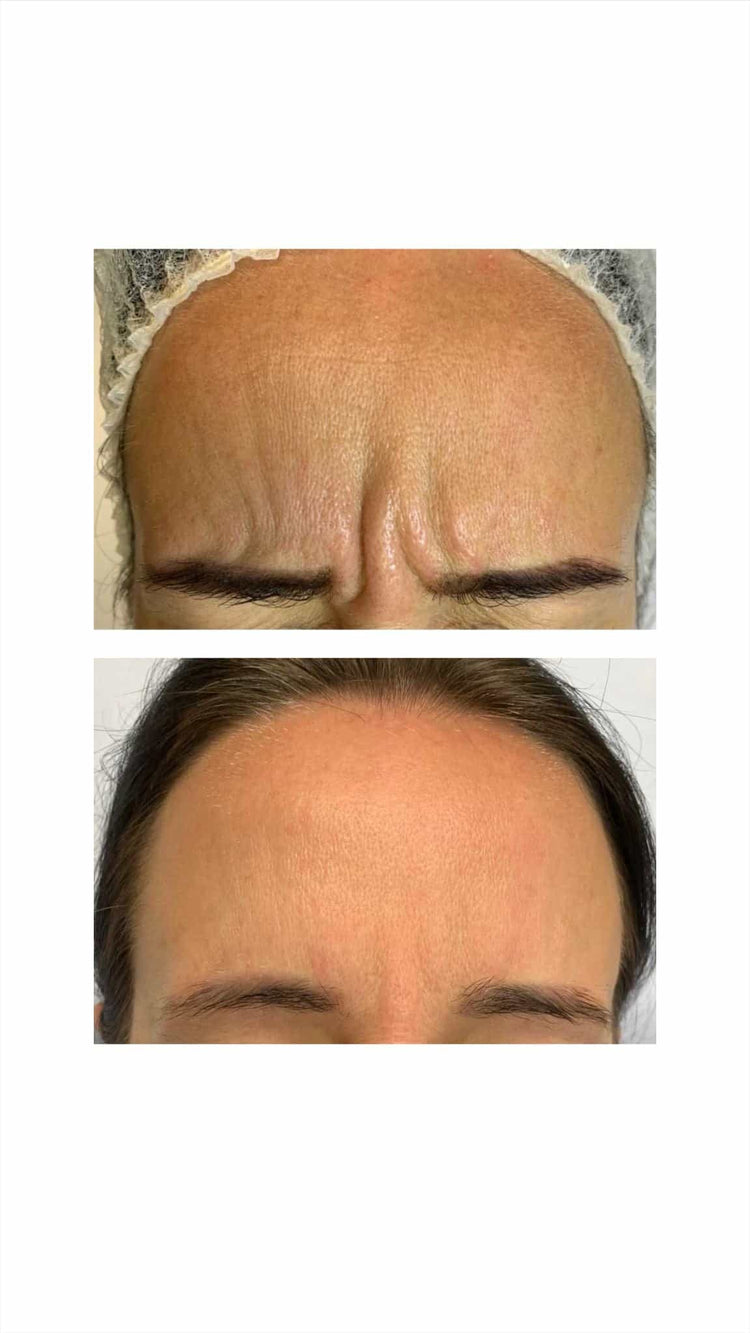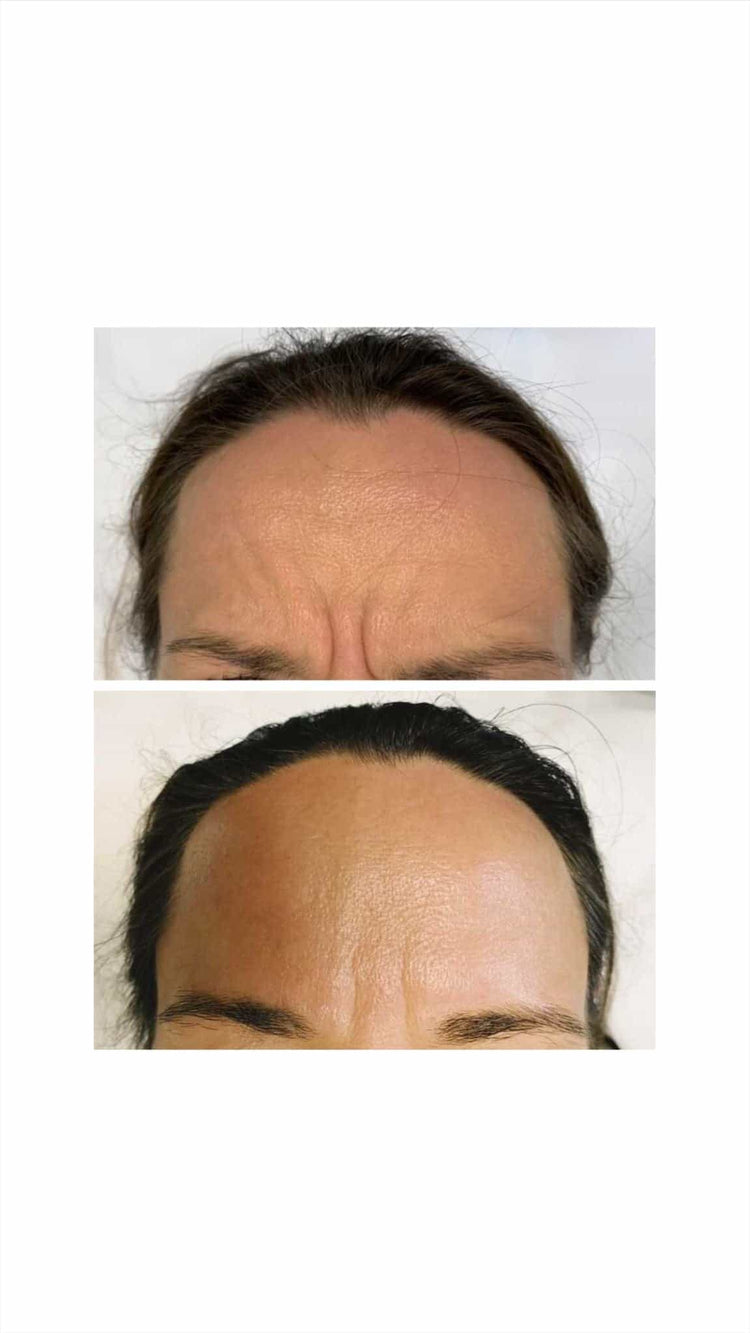Skin Type and its Impact on Injection Effectiveness
Understanding your skin type is crucial when considering anti-wrinkle injections. Different skin types react differently to treatments, influencing the effectiveness and longevity of results.
Oily Skin
Oily skin can be a bit more challenging for anti-wrinkle injections. The excess sebum production can cause the injected product to spread more quickly, potentially leading to a less defined or blurred result. Additionally, the oiliness may interfere with the absorption of the injection, reducing its effectiveness.
Dry Skin
Dry skin presents unique considerations for anti-wrinkle injections.
- Injecting into dry skin can lead to a more pronounced effect as there is less fluid to diffuse the product.
- However, the thinner and more delicate nature of dry skin may require a more cautious approach, with smaller dosages and precise injection sites to minimize bruising or irritation.
It’s essential for individuals with dry skin to work closely with a qualified practitioner who can assess their specific needs and tailor the treatment accordingly.
Sensitive Skin
Sensitive skin requires extra care when considering anti-wrinkle injections. This skin type is more prone to irritation, redness, and allergic reactions.
Individuals with sensitive skin may experience a stronger reaction to the injection itself, leading to increased swelling or discomfort. It’s crucial for those with sensitive skin to discuss their concerns thoroughly with a qualified practitioner who can assess their individual sensitivity and recommend suitable alternatives or modifications to the treatment protocol.
Combination Skin
Combination skin presents a unique set of challenges when it comes to anti-wrinkle injections. This skin type features both oily and dry areas, often with different sensitivities in various regions.
Treating combination skin requires a tailored approach, taking into consideration the specific needs of each area. A qualified practitioner will carefully assess the skin’s characteristics and adjust the dosage, injection sites, and technique accordingly.
For example, on oilier areas, a smaller dosage or a different spreading technique might be used to prevent excessive diffusion of the product. Conversely, drier areas may require a slightly larger dosage to achieve the desired effect without being overwhelmed by the skin’s natural dryness.
Potential Side Effects Based on Skin Type
Understanding your skin type is crucial when considering anti-wrinkle injections as different types react differently to treatments.
Inflammation and Redness in Oily Skin
Oily skin presents unique challenges for anti-wrinkle injections. The excess sebum production can lead to the injected product spreading more quickly, potentially resulting in a less defined or blurred result. This is because the oil interferes with the product’s ability to stay localized at the injection site.
Furthermore, oily skin may hinder the absorption of the injection, reducing its effectiveness. The sebum can create a barrier that prevents the product from penetrating into the muscles effectively.
Inflammation and redness are common side effects of anti-wrinkle injections, but they can be more prominent in individuals with oily skin. The oiliness can exacerbate any existing inflammation or make it more difficult for the skin to heal properly.
Dullness and Dryness in Dry Skin
In dry skin, the lack of moisture can lead to a more pronounced effect from anti-wrinkle injections. Since there’s less fluid to diffuse the product, the results tend to be more noticeable and last longer.

However, dry skin is also thinner and more delicate than other skin types. This means that injecting into dry skin requires a more cautious approach.
A qualified practitioner will need to use smaller dosages and carefully choose injection sites to minimize the risk of bruising or irritation.
Increased Sensitivity Reactions in Sensitive Skin
Sensitive skin is particularly susceptible to adverse reactions when it comes to anti-wrinkle injections. Individuals with sensitive skin may experience heightened sensitivity to the injection itself, leading to increased swelling, redness, or discomfort at the injection site.
The injected product can trigger an inflammatory response in sensitive skin, resulting in more pronounced and longer-lasting reactions.
It’s crucial for those with sensitive skin to have a thorough consultation with a qualified practitioner who can assess their individual sensitivity level and recommend suitable modifications to the treatment protocol.
Considerations for Different Ethnicities
Different ethnicities may experience varying responses to anti-wrinkle injections due to differences in skin pigmentation, thickness, and oil production. For instance, individuals with darker skin tones may require a different dosage or injection technique to achieve optimal results while minimizing the risk of discoloration or post-inflammatory hyperpigmentation.
Pigmentation Variations
Different ethnicities may experience varying responses to anti-wrinkle injections due to differences in skin pigmentation, thickness, and oil production.
- Individuals with darker skin tones may require a different dosage or injection technique to achieve optimal results while minimizing the risk of discoloration or post-inflammatory hyperpigmentation.
- It’s crucial for practitioners to consider these individual differences and tailor treatments accordingly to ensure safe and effective outcomes for all patients, regardless of their ethnicity.
Facial Anatomy Differences
Different ethnicities may experience varying responses to anti-wrinkle injections due to differences in skin pigmentation, thickness, and oil production.
Individuals with darker skin tones may require a different dosage or injection technique to achieve optimal results while minimizing the risk of discoloration or post-inflammatory hyperpigmentation.
- It’s crucial for practitioners to consider these individual differences and tailor treatments accordingly to ensure safe and effective outcomes for all patients, regardless of their ethnicity.
Recommendations for Choosing the Right Treatment
Choosing the right treatment involves careful consideration of various factors, with skin type being a particularly important aspect when it comes to anti-wrinkle injections. Different skin types respond differently to treatments, influencing both the effectiveness and longevity of results.
Consultation with a Qualified Practitioner
Understanding your skin type is crucial when considering anti-wrinkle injections as different types react differently to treatments.
Oily skin presents unique challenges for anti-wrinkle injections. The excess sebum production can lead to the injected product spreading more quickly, potentially resulting in a less defined or blurred result.
Furthermore, oily skin may hinder the absorption of the injection, reducing its effectiveness.
- The oiliness can exacerbate any existing inflammation or make it more difficult for the skin to heal properly.
In dry skin, the lack of moisture can lead to a more pronounced effect from anti-wrinkle injections. Since there’s less fluid to diffuse the product, the results tend to be more noticeable and last longer.
However, dry skin is also thinner and more delicate than other skin types. This means that injecting into dry skin requires a more cautious approach.
A qualified practitioner will need to use smaller dosages and carefully choose injection sites to minimize the risk of bruising or irritation.
Sensitive skin is particularly susceptible to adverse reactions when it comes to anti-wrinkle injections. Individuals with sensitive skin may experience heightened sensitivity to the injection itself, leading to increased swelling, redness, or discomfort at the injection site.
The injected product can trigger an inflammatory response in sensitive skin, resulting in more pronounced and longer-lasting reactions.
Different ethnicities may experience varying responses to anti-wrinkle injections due to differences in skin pigmentation, thickness, and oil production.
Individuals with darker skin tones may require a different dosage or injection technique to achieve optimal results while minimizing the risk of discoloration or post-inflammatory hyperpigmentation.

Choosing the right treatment involves careful consideration of various factors, with skin type being a particularly important aspect when it comes to anti-wrinkle injections. Different skin types respond differently to treatments, influencing both the effectiveness and longevity of results. It is essential to consult with a qualified practitioner to determine the most suitable treatment approach based on individual skin characteristics and concerns.
Customized Treatment Plans
Understanding your skin type is crucial when considering anti-wrinkle injections as different types react differently to treatments.
Oily skin presents unique challenges for anti-wrinkle injections. The excess sebum production can lead to the injected product spreading more quickly, potentially resulting in a less defined or blurred result. Furthermore, oily skin may hinder the absorption of the injection, reducing its effectiveness.
Dry skin, on the other hand, experiences a different set of considerations. The lack of moisture can lead to a more pronounced effect from anti-wrinkle injections because there’s less fluid to diffuse the product, resulting in more noticeable and longer-lasting results. However, dry skin is also thinner and more delicate, requiring a more cautious approach during treatment.
Sensitive skin reacts more strongly to treatments, potentially experiencing heightened sensitivity to the injection itself, leading to increased swelling, redness, or discomfort at the injection site. The injected product can trigger an inflammatory response in sensitive skin, resulting in more pronounced and longer-lasting reactions.
Different ethnicities may experience varying responses to anti-wrinkle injections due to differences in skin pigmentation, thickness, and oil production. Individuals with darker skin tones may require a different dosage or injection technique to achieve optimal results while minimizing the risk of discoloration or post-inflammatory hyperpigmentation.
Choosing the right treatment involves careful consideration of various factors, with skin type being a particularly important aspect when it comes to anti-wrinkle injections. Different skin types respond differently to treatments, influencing both the effectiveness and longevity of results. It is essential to consult with a qualified practitioner to determine the most suitable treatment approach based on individual skin characteristics and concerns.
Book your consultation for crow’s feet and forehead lines treatment at It’s Me & You Clinic
- Exosome Therapy For Skin Rejuvenation Near Addlestone, Surrey - May 5, 2025
- How To Incorporate CBD Gummy Edibles Into Your Daily Life - May 4, 2025
- Can Kratom Gold Shots Replace Energy Drinks? - May 3, 2025
